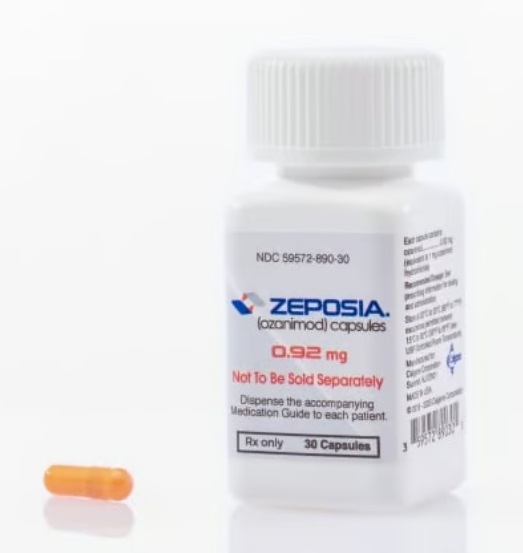Another oral option of a new mechanism has appeared in Korea’s ulcerative colitis (UC) market, saturated with various treatment options, ranging from injections such as TNF, interleukin, Integrin, and JAK inhibitors, to pills.

On Thursday, the Ministry of Food and Drug Safety approved Zeposia Capsule 0.92mg and Zeposia Capsule Starter Pack 0.23mg/0/46mg requested by BMS Korea.
Zeposia is the first-in-class sphingosine 1-phosphate (S1P) receptor controller and has been approved to treat moderate to severe UC patients who don’t properly respond to standard treatments (corticosteroid, immunosuppressants) or biologic agents, lose responses or are not drug-tolerant.
Zeposia targets the S1P receptor of lymphocytes, a type of immune cell, to reduce the number of lymphocytes in the peripheral blood. This mechanism is presumed to reduce lymphocyte migration to the intestine and effectively treat ulcerative colitis.
Zeposia is the second oral drug developed to treat moderate to severe ulcerative colitis following JAK inhibitors. For maintenance therapy, a 0.92mg dose is administered orally once a day and is increased to starter packs (0.23 mg and 0.46 mg) up to seven days after first administration and perform initiation of therapy
Zeposia’s efficacy and safety were proved through TRUENORTH-I and TRUENORTH-M programs, a phase 3 clinical trial on moderate to severely active ulcerative colitis adult patients compared to a placebo. In these trials, Zeposia showed significant improvement compared to a placebo in the clinical correlation at the 10th week as the primary evaluation endpoint, clinical response as the secondary endpoint, and endoscopic improvement and mucosal healing.
Notably, Zeposia seeks to cement its status as the primary drug before using biological agents by making the most of its advantage as the first oral treatment released in the U.S. market for the first time.
A U.S. market analysis agency said Zeposia’s revenue increase directly affected the prescription of adalimumab (original product name: Humira), a TNF inhibitor.
However, it is uncertain whether Zeposia can lure patients before they move from corticosteroids or immunosuppressants to biologic agents. That’s because, in Korea, the insurance coverage level often determines the treatment priority.
The Korean Association for the Study of Intestinal Diseases announced its third revision of guidelines on ulcerative colitis last year, recommending the selection of all therapeutic options currently developed to treat moderate-severe patients on the same line.
However, in the case of the only oral option, the JAK inhibitor has been degraded to a secondary treatment that can be used after biological preparations in patients with advanced age and cardiovascular risk due to safety issues.
Accordingly, it will also be noteworthy whether Zeposia can make a soft landing in the domestic market, beating out previous biological agents as another oral treatment.

